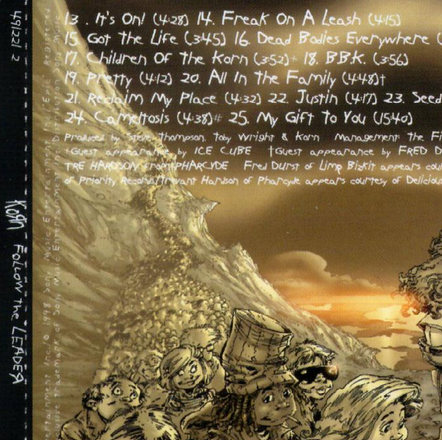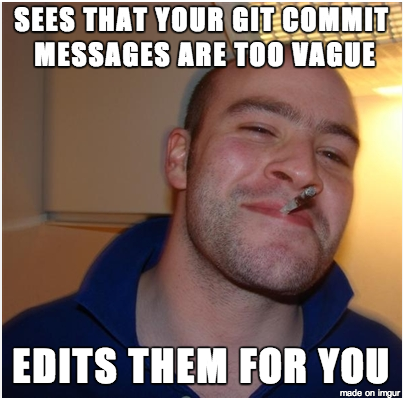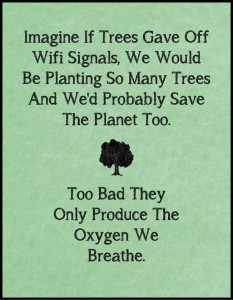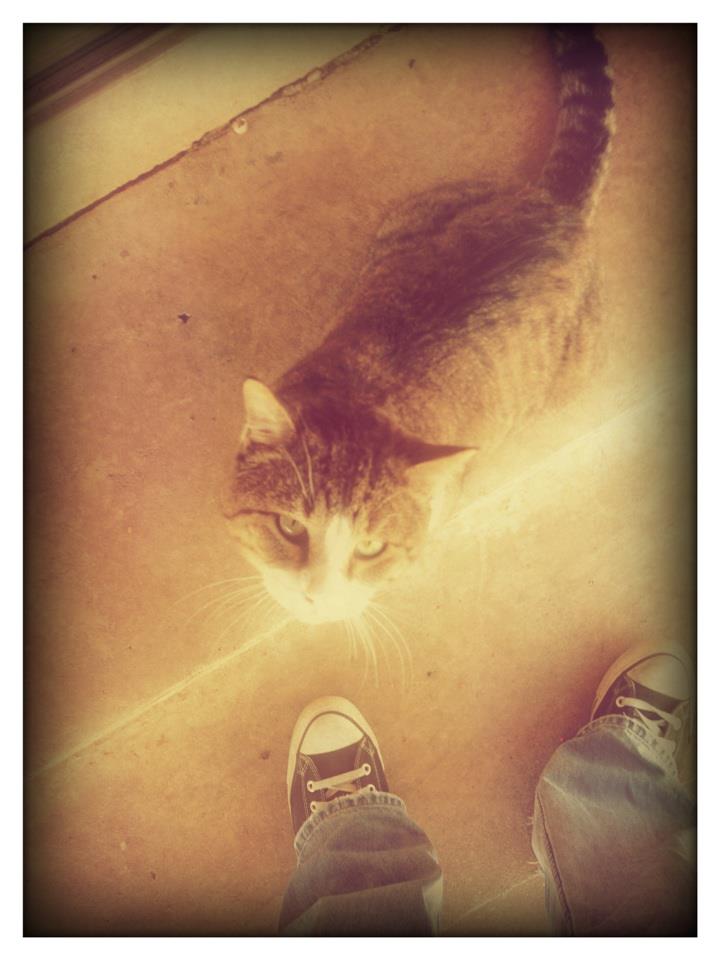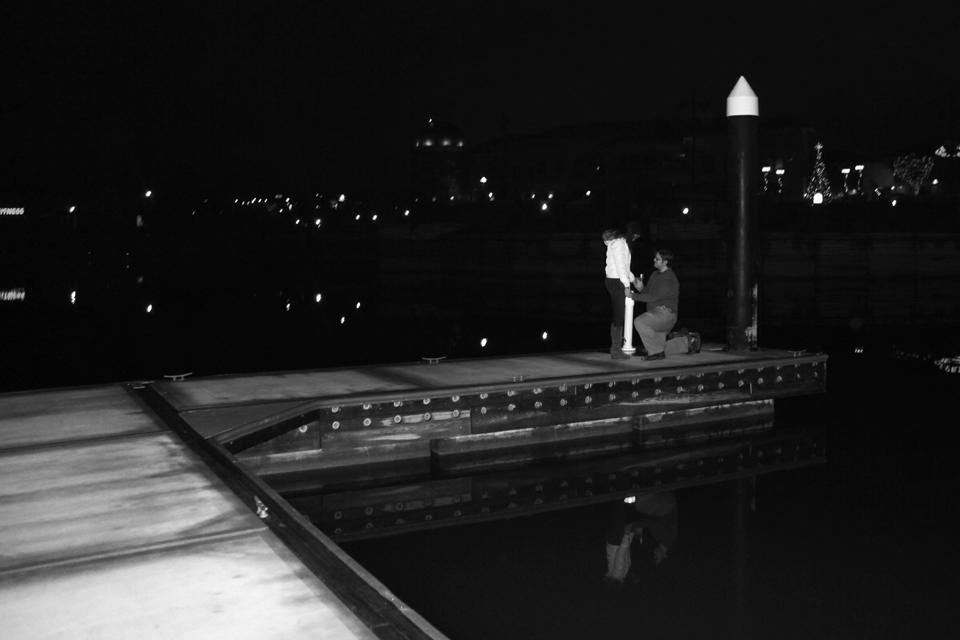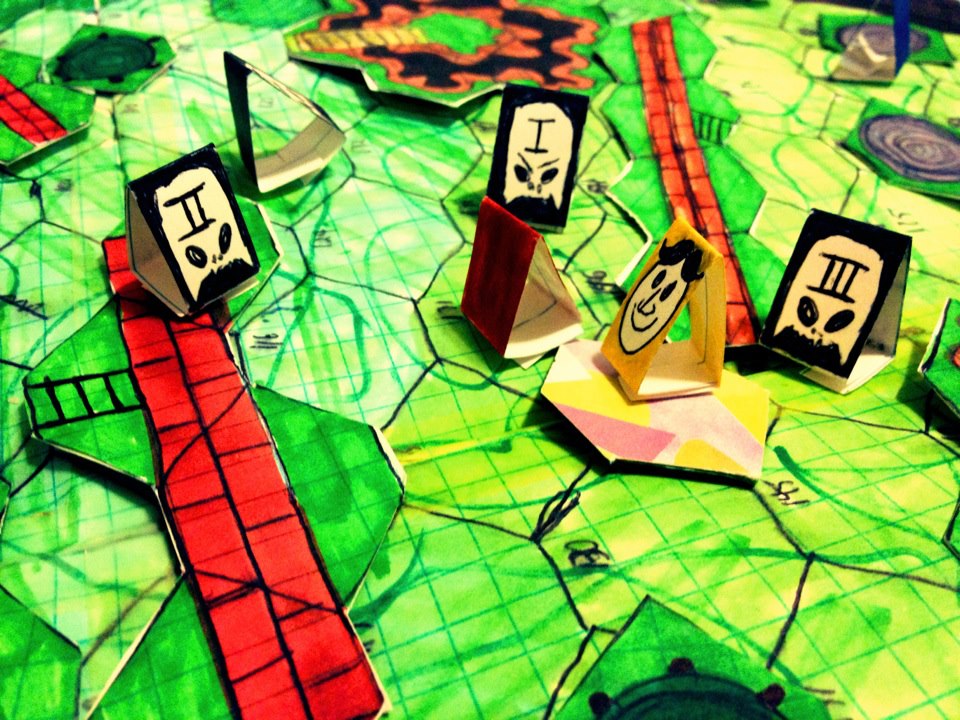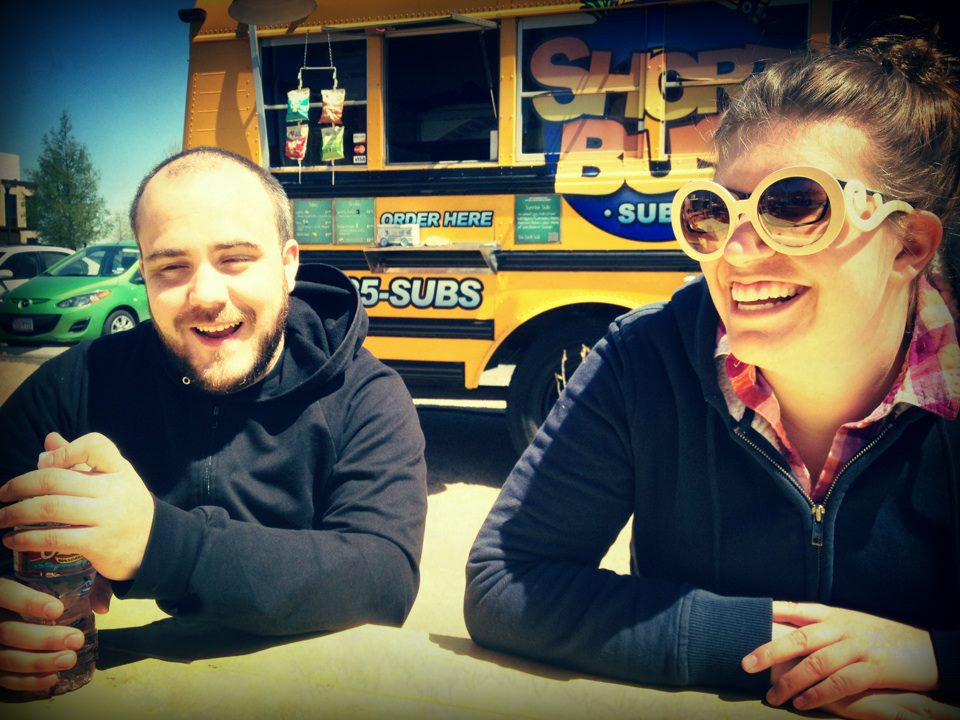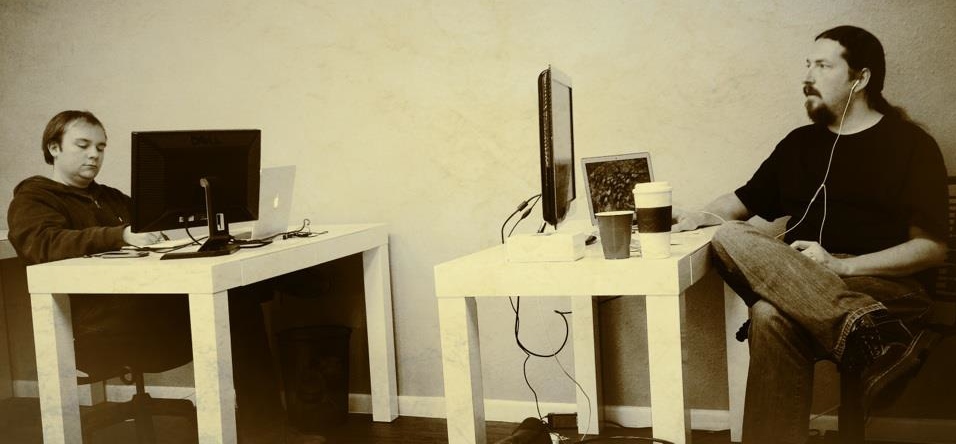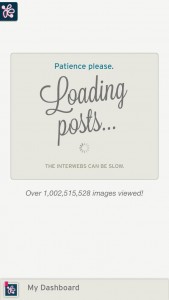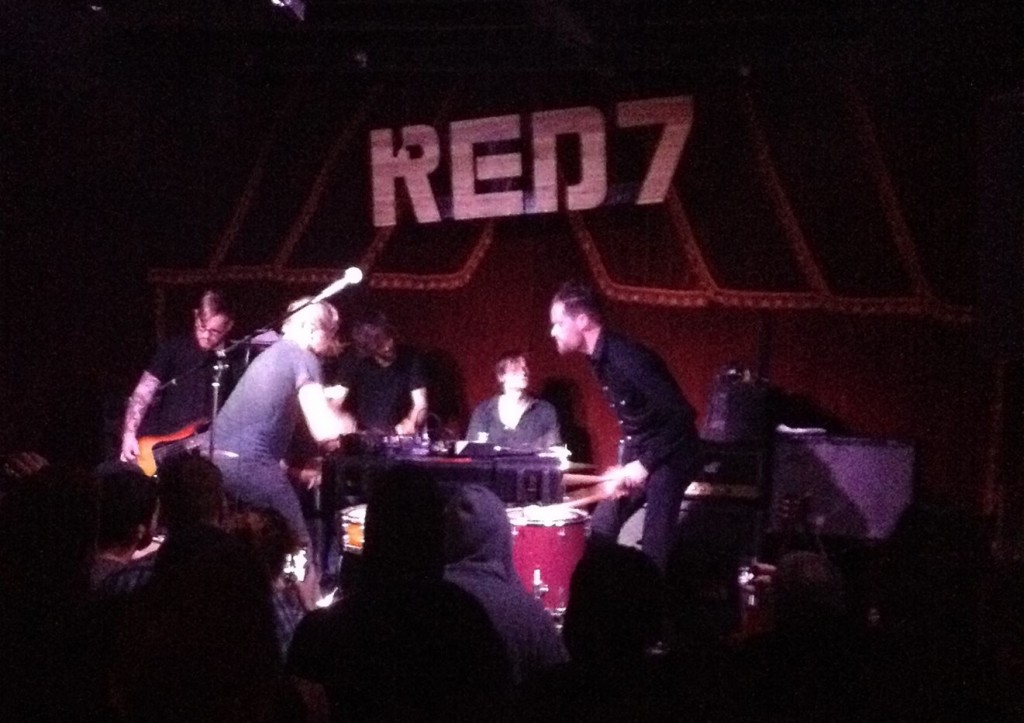2013, for me, sucked. The overly-simplistic way to summarize would be to say that I simply made a bad career move. It’s more than that, though.
The person I had become leading into 2013 was not who I want to be – to be clear, I did not say it’s not who I wanted to be, rather, who I was aiming for becoming is no longer who I wish to be. For me, if nothing else, that’s the main takeaway from 2013: people can (and do) change who they are and who they want to be – and that’s ok, it happens. The trick is remembering how much impact our choices can affect others.
—
It’s as if I’ve come full circle – a few years ago I left a steady-paying, somewhat interesting corporate programming career that started at Visa and ended at PayPal; and now, three years later, I’m ready to go back.
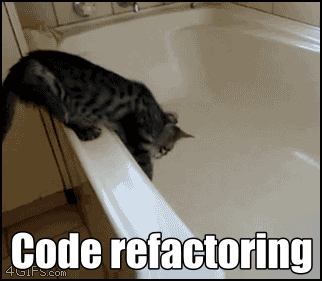
The younger, cockier version of me from three years ago would almost certainly want to kick my modern-day ass and call me a sellout.
Younger Jason had his future ahead of him, and viewed his life’s worth in terms of career. Younger Jason would not settle for ‘wasting time’.
Younger Jason was certain there was a perfect opportunity out there for him to be both productive and satisfied.
But, older Jason’s got some mileage on the younger version, and I’m happy to report that it’s true, you can be both productive and satisfied – but often at great cost. You may reach greater heights of personal success than imagined, only to turn around and see all that you’ve missed in trade for said success.
—
I took a somewhat risky path heading into 2013, by accepting a ground-floor ‘partner’-level position at a small mobile consultancy. The job was great. We worked 30-35 hours a week; which often meant 4 day work weeks. We telecommuted all we wanted, and I had the opportunity to work with one of my closest friends. Working at the consultancy was as close as I’ll likely ever get to a high-paying position with complete autonomy.
Life was incredible at the mobile firm, until it wasn’t. I started the year super-strong, spending four days a week slinging code for our clients, and one day a week starting 4 or 5 small projects of my own. My friends and I had big could-not-fail plans for our semi-successful Tumblr app, and I felt there was nothing that could stop me.
There was just one wrinkle – I had to be an account manager.
Lesson #1: The customer’s always right.
As a teenager, I worked at a Best Buy in the music and software department. I had seen Empire Records, and sadly, Best Buy, was and still is the closest thing to a record store that existed in my personality-free hometown suburb.
The music department, in those days, was huge. It was also the #1 source of stolen products, and for that reason, it was placed toward the front/middle of the store, where security, cashiers, and even managers could assist with eyeballs-on for the department. An upside to this arrangement was that I was able to witness many examples of customer service, often with not-so-happy customers, without actually directly interacting in such situations.
One morning a gentleman walked into the store extremely angered from the very start. He had his son with him, and his son looked fairly upset too. His son was clearly underage and he had a cd with a parental-advisory sticker in his hands. Bonus: the manager who wouldn’t take shit from *anyone* *ever* was on duty.
For context, this was late 90s big box retail – where the customer was always wrong and returns/exchanges factored into a bullshit store metric that would hurt your store when compared to others in the region; so, you might say our manager was incentivized to prove customers wrong.
This was one of those juicy dramatic situations where half of the media department just happened to be suspiciously loitering around and half-heartedly organizing the very front of the department within ear shot by the time the customer and his son reached the desk.
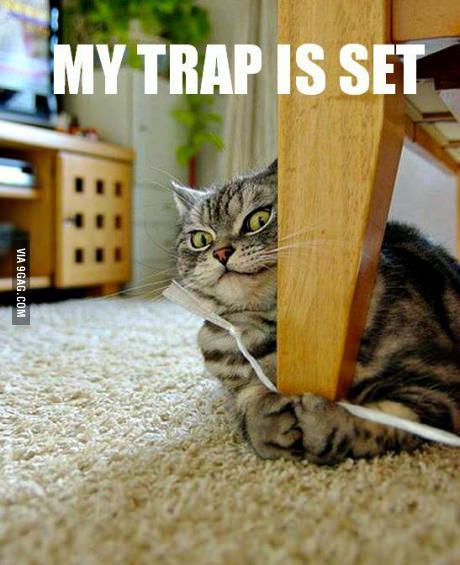
The customer surprised us, he was not there to complain about selling inappropriate content to a minor; instead, he was livid that his son’s cd was defective. The CD had twelve tracks of short silence, and the first real song started on track 13.
The man’s son really enjoyed the cd, aside from the obvious defect, and he simply wanted to exchange it. The CSR on hand called our favorite manager over to approve the exchange, and our manager helpfully noticed that the album’s backside artwork listed the first track with the #13 beside it – it appeared the track 13 thing was intentional. The customer immediately declared that the manager’s suggestion was ludicrous and started a round of fireworks unmatched before or after that day – ending with the manager verbally screaming the guy out of the building.
The weird thing about the experience was, the customer was, in fact, technically-speaking: wrong.
In time, that customer interaction became the stuff of legend in our little media department. In some ways, it boosted our little insignificant egos to know we were somehow just a tad smarter or with-it than these occasionally idiotic customers we interfaced with, and, for better or for worse, it was nice knowing we had management with backbone to back us up if a customer demanded something unreasonable.
The thing is though, we all have egos, we’re all self-justified; and we all have different levels of experience this way or that. Veterans from Nirvana cds with one too many tracks (with a ‘secret’ track) would call the Korn cd that started at 13 a clever or amusing move, but clearly someone without our specific background could be frustrated that their way of understanding things did not apply – and, it’s never fun being wrong.
—
The shitty thing about customers is, they’re not always experienced, but they’re always right. This can be especially hard when you’re in consulting, where every move you make can be the last, and you’re expected to ‘be the expert’.
It is not easy being ‘the expert’, when someone is utilizing your services and paying you more than average precisely because they cannot do something as well you do. This is particularly sticky when you’re talking software engineering, because engineers are, generally speaking, not a group to take being wrong lightly.
Sadly, more often than not, my generation of software engineers tend to be fiercely competitive for no logical reason, myself included. At the first sign of disagreement, everything’s about being the #1 gold star sticker honor student engineer who bested someone else.
For someone who prides himself on being insightful and clever, it’s slightly humiliating to admit that this year, for the first time ever, I understand the “my job is to take the schematics from the engineers to the managers” guy in the movie Office Space. For the longest time I thought the joke at hand was that the guy was the perfect personification of useless bureaucracy. That is precisely what he is, but the thing is, he’s necessary – because engineers are not socially gracious, to put it mildly.
My job this past year was partially to be that account managing/team-lead socially gracious guy, and, for better or worse, I learned that is not what I am. I am a strong engineer, a strong planner, and an perhaps an adequate team-lead with proper backing management behind me, but I am not an account manager. I do not relish the idea of screaming some fool out of the building, or justifying my firm’s participation for the millionth time – I like being a heads-down worker bee, and letting someone else handle the justifications and conflicts.
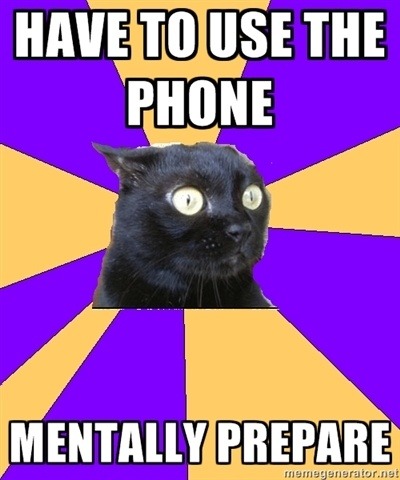
Fortunately, in software engineering, with a large enough team, being a heads-down worker bee is just fine. So don’t fret if that sounds like you.
Lesson #2: It’s not you.
As 2013 unfolded into a series of escalating, humiliating, embarrassing and painful personal career failures – I discovered a personal boundary, and I discovered a little nugget of wisdom that feels like what I’ve been searching for all along, ever since leaving my corporate cushy job three years ago: I’m only as good as those around me.
I did not know going into 2013 that I was a shitty account manager. Likewise, I did not know that I had inadequate visual design skills, or that startups were not for me.
I came into 2013 on a bit of a high, the popular iOS Tumblr app that two of my friends and I put together was racking up $150 a day in sales and growing, and I was fairly sure I was a god among men.
Or, well .. I thought I was a rockstar visual design communicator when I started the year, but then I worked with designers who taught me that in fact it wasn’t me who was good, it was someone else.

Our designer on the Tumblr product is fantastically amazing at what she does – this I knew. What I did not know was that she was so amazingly over-the-top awesome that she made the rest of us feel like we were pretty smart and good at it too.
That’s one of the life’s funny little quirks, sometimes you don’t know what you had until it’s gone or too late. The very best among us make us feel like we’re somehow good at something too, even when we’re truly not. The very best of our coworkers, friends, and family, will bring out the very best in us, sometimes without us ever catching on.
In my case, it was too late – I’d signed up for a job, thinking myself a badass visual design communicator as well as potentially badass account manager, when in reality I’m fairly horrid at both of these things. It took the better part of a year of working with some peers and superiors that didn’t just *click* with me to realize that I’ve had some pretty badass and amazingly talented peers and bosses in my past that I owe a lot of credit.
Lesson #3: Test your boundaries.
When I left my boring corporate big-co job years ago, I wanted to know exactly how or why things come to be the way they are. For better or for worse, I truly viewed my career up to that point as mostly insignificant – all of my peers and I were coattail riders in a sea of other coattail riders. Someone N years ago started a credit card company, someone N years ago started a online payment website, whatever it was – I wasn’t there at the beginning and I wondered how what that must have been like.
I wouldn’t say that my short tenure in a small mobile consulting in a firm at the ground-level is 100% proof of how the entire world works, but for me, the experience answered a number of lingering curiosities I could not have answered any other way – nobody I knew was willing to take the risk or had taken the risk I had with this job opportunity; so reading a thousand hacker news stories about wantrapreneurs was about as close as I’d ever come to fully understanding what ground-floor looks and feels like.
I’ll say this for it: ground-floor was easily the most fun I’ve ever had in my career.
It was also pretty god damn stressful – too much so for my taste. The firm I joined was already profitable, as only a client services startup can be – so I had no reason to worry about financials or the future of the company and the 4 or 5 of us employed there. And yet, that’s what I did – endlessly.
I’d always *wanted* to know how company financials work, how much profit was there, really? What I had not been curious about was the mental responsibility involved with knowing these pseudo-secret numbers – I couldn’t handle it – and we were profitable!
Part of the stress involved there was the fact that mobile projects are both great and terrible, in that they’re short-lived. You can kick out a fairly complex mobile app with a team of five people working 30 hour weeks in two months. This is good, as you’re never bored, there’s always something new – but it’s also bad, because you’re always supposed to be on the lookout for that next big client to help out when the current project’s 1.0 or 3.0 ships. Like the financials, our pipeline of clients was always healthy, mostly because the founder of the firm was a rockstar – always calm in all situations, and always ready to upsell without the customer realizing they were being upsold – he simply provided customers with what they needed, seemingly at the moment they would discover what they wanted.
It may sound strange, but even though we were both profitable and healthy, there was a significant seemingly unconscious mental burden that I could not escape when I was in that position with a bit of power to mold the company’s future. I stressed myself out quite often at the thought of being the one responsible for making the wrong move that’d put my friends and peers out of a job. I didn’t worry for my own job in the slightest because I always land on my feet, but being quasi-responsible for others well-being was too much.
I managed the stress easily enough for a while, but things started going not-as-expected fairly early. The founder of the company was making his own business moves that I didn’t completely agree with b/c I thought them risky, while I was making some differing but super-safe moves with our Tumblr product on the side. In the end, one of us is still a founder, single-handedly paying 4 or 5 salaries, and let’s just say the Tumblr product isn’t making $150 a day anymore – the wave of Tumblr hype settled down, briefly before they were acquired.
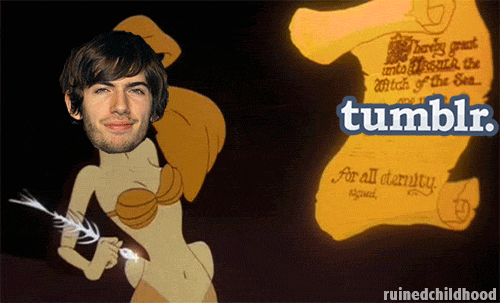
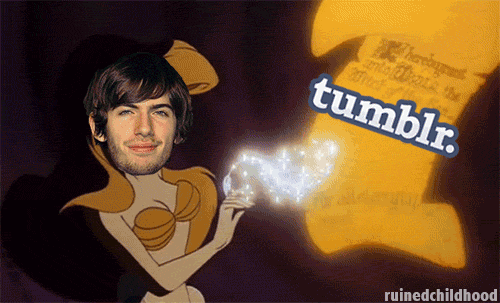
It was at this time that I began to seriously consider my differing motivations and style of taking on risk.
Things really started falling over for me when I actually started fucking up – getting caught in account management 101 stuff where a normally happy customer suddenly wasn’t happy without reason – what do you do then? Me? I panic, and here’s a pro-tip: that’s not what you’re supposed to do.
When a customer wakes up on the wrong side of the bed, you’re supposed to listen, ask questions, and above-all, keep your cool – and to put it nicely, in that back-against-the-wall/cornered situation, that’s not my first instinct. Pro-tip #2: Customers don’t really care for hearing how everything up until yesterday was going smoothly, and frankly, they don’t care to hear much of anything other than “you know what, you’re right!” …
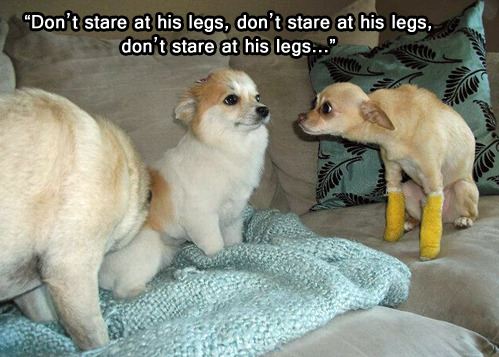
After the first incident of this, I was pretty shaken up – I sought some career counseling and my counselor’s advice was to do my best to learn from my mistake, but keep on being me. She advised that things have a way of working their way out, and the only way I could determine if the ground-floor scene was my long-term career would be to stick it out and try to learn without compromising my core values.
I tried to stick it out, then a few months later the next eventual hot situation came along, and I couldn’t control my instincts. Nice-guy working it out calmly worked to a certain extent, until an unworkable situation recurred continually despite our continual guidance and I lost it.
When it was all over with, I learned a fair bit about how ground-floor works, or at least enough to understand a lot of ups and downs of that situation.
I also learned about a few boundaries that in previous years were sort of hazy concerns I wasn’t sure of – maybe I’m decent at visual design?! – maybe I can handle accounts?! – now those hazy curiosities are crystal clear.
I would not characterize my year of personal career failures as something I enjoyed, but the upside to the experience is that I finally experienced the logical conclusion to my curiosities from years ago – I have answers that work for me.
I feel, in a few short years I’ve had a severely simplified / fast-paced view of how businesses come to exist and grow – and, knowing what I now know, I’m now finally comfortable with the idea of contributing anywhere, big or small, as long as I don’t have to manage clients or be responsible for people’s salaries.
Lesson #3: Know when to quit.
I suppose the hardest part of this past year was screwing up the second time. It was humiliating, and embarrassing to be on the losing end of something I felt fairly justified in. Sometime around round #6 or #7 of fighting this worn-out repeat-disagreement with a developer, I just started throwing in the towel and losing my cool, Mr Nice-Guy Jason went on vacation and “Keeping it Real” Jason started to come out to play.
I wanted to win that last little battle, and until it exploded in my face, I honestly didn’t think it was anything other than an average engineering disagreement – “we’re all sarcastic and funny and biting on the chat” – this is what I told myself.
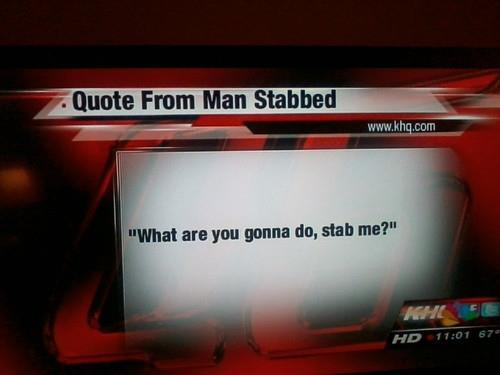
What I did not realize was: It’s okay to get along with your customer, but always remember they are your customer.
When things settled from that second fiasco, I knew what the mobile consultancy needed was another competent account manager, and there was an expectation in place for that person to be me. As long as I worked there, on salary, it would have been a risky situation to take on a full-time account manager to compensate for my inadequacies in that arena.
I wished there was some way I could continue as is – but I found I couldn’t. There were only two options I could come up with, and so I offered them both to the founder…
Option A was that I’d continue as a non-salaried contractor without account management responsibilities. This would free the founder up if times got tight financially without me in that role sucking up salary, and it would free me from stresses I was no longer interested in bearing. Option B would be that we’d part ways.
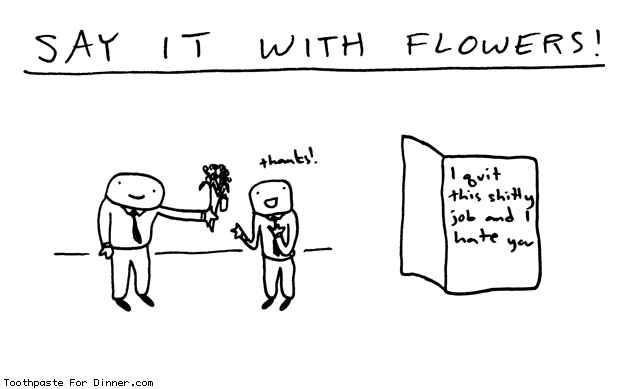
I printed up my terms – 8 or 9 large-font statements on a single piece of paper, and presented them. We discussed the terms, and we amended our agreement to be that I’d finish up a client’s work for another month, and then part ways.
It probably sounds silly, but one small saving grace in the career story of 2013 for me was the fact that I had the balls to type up my simple list of needs and actually present them, rather than quitting outright, or waiting to be fired, or just secretly interviewing around and leave the guy hanging.
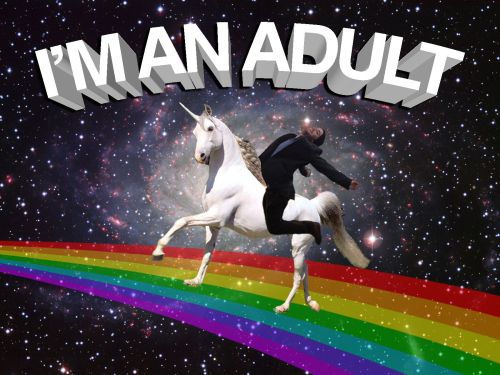
Lesson #4: It’s not a new year’s resolution, it’s a bucket list.
I set out in 2013 to conquer the world – as the kickass know-it-all super talented guy. I had a super long list of ideas to turn into little apps, and big plans for resuscitating our fading Tumblr app.
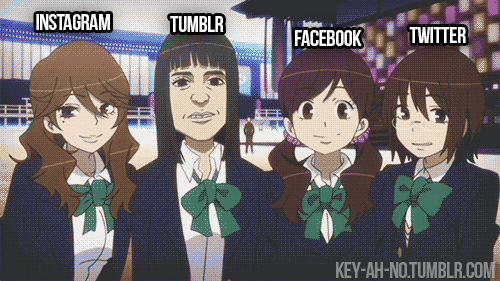
One personal goal I remember was that I set out to publish 4 or 5 small apps on the side. I wound up outright canceling participation in one of the projects, and publishing only one of the five. And, bonus, the one we actually published did so poorly that we wound up pulling it a few months later rather than rev it.
When I was feeling top of my game, working ceaselessly on the small apps was my everything, it was what defined me. I was dedicated to spending that friday, every friday, building my own thing – until things started crumbling: the free version of the tumblr app didn’t do well; our users became hostile and trashed our ratings when we made changes they asked for; our second attempt at a small little app failed outright; and front and center, this was about the same time I was beginning to learn how shitty at account management I was.
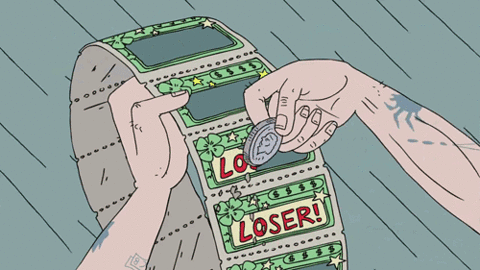
Still, stubbornly, I marched forward for a good long while, tethering myself to my work like it was a lifeline – more important than oxygen itself.
I kept marching, until I just couldn’t anymore. Sometime in the summer I asked my buddy if he was growing tired of the making-apps-on-the-side game and ever felt like quitting. He mentioned that he’d felt like that for a decent amount of time already. We decided to put the projects to bed for a while (or forever?) and try something else.

Something else turned out to be borderlands – a great video game on the PS3. Both my friend and I take a certain amount of pride in being productive and talented, and we both let our pride take over so much of our lives that we couldn’t see anything else from time to time. This all works perfectly swell when your sales charts are track up and to the right, but not so much when the dice roll the other way.
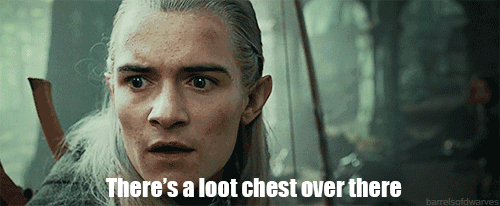
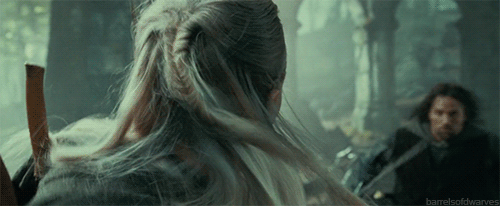
For the fourth quarter of the year we played the shit out of borderlands and even started playing basketball (a sport, outside, in the sun, would not recommend) together from time to time. I can’t speak for him, but somehow I’ve felt as fulfilled and entertained with the video games as I did when we first had the spark in us to make the Tumblr app – I suppose that’s how life goes, sometime’s you’re a mad scientist cooking something beautiful in xcode, and sometimes you’re playing video games without a care in the world.
Toward the end of the year, there was a fair amount of dread in me for failing my personal goals of you know, doing well at my job, and publishing some apps. I made list XYZ and none of it was done. Today my wife mentioned something she heard recently: “It’s not a new years resolution, it’s a bucket list.” – that is, it may be best to think of one’s goals in terms of eventually rather than time-bound. Thinking of things this way sounds easier to me, and it seems it may fit – I’m not going into 2014 expecting anything fantastic in terms of goals, in fact, I just hope to follow up on a few of the apps I set out to finish in 2013.
The point of life is not to be productive, it’s okay to play borderlands if you need to.
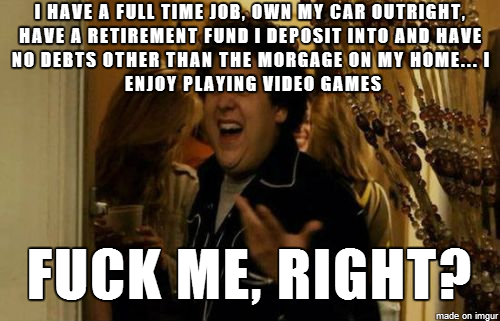
Lesson #5: Life is better than the movies.
My wife and I celebrated our fifth anniversary in November. Naturally, I set out early in 2013 to come up with an epic personalized gift to look back on with fondness. It took me a while, but I finally settled on making a picture book.
The picture book was, in some ways, the biggest failure of my entire terrible year.
I set out to sort 8 years of photos into two sets: good enough, and not good enough. Like all major projects, it started out strong, but as I went on sorting, I started to feel guilty about my photo choices. I felt there was a dual purpose to the photo book idea, and I let my demons get the better of me. I felt the book idea was not ‘pure’ in some sense, because it would be showboating some of my photography skills in this little coffee table book you see at everyone’s house; I also felt less ‘pure’ because I had a dual motive of trimming the photo fat and organizing my photo collection better.
The more I went on, the more confused and terrible I felt about the project – it was cliche, I was topsy turvy about my job situation, blah blah. At the end of it all, our anniversary arrived and I had nothing – no gift at all.
Neither my wife or I are ones to expect gifts, it’s just a nice thought, you know? And in previous years we have both come up with some pretty great ideas.
Our anniversary rolled around, and she and a couple of my friends made this epic music box that was wired up with a mini speaker and ipod to play one of the songs from our wedding. It was so perfect, definitely a treasure I hope to keep for as long as I live.
And, I had nothing.
I had nothing because I got my panties in a wad about overanalyzing myself and my motives. I had nothing because I would not settle for not-good-enough and I’d rather fail outright than compromise. I had nothing because I knew she deserved more than generic, more than cliche – and I was spiraling on this dramatic emo journey into questioning who or what I was as a man/husband/whatever – so focused on self that by the time the end of my job situation rolled around part of my spectacular failure at life for the year was to just say “I’ll come up with something” – and never actually come up with something.

—
A few weeks later a friend of mine was visiting. He was going through a bizarre rough spot in life and he point blank asked me if my life was like the movies. He asked me these weird little questions like ‘What do your wife and you talk about normally over dinner?’. He was getting at a fundamental failing of our advertising-soaked culture, I think, and I didn’t realize it until that moment. He was genuinely curious to know if anyones life was better than a movie.
He asked me these questions and I thought for a moment. I thought, and I remembered the other reason I stopped the photo book project – there was too much. When I set out to make the book, I figured a 100 page book, with perhaps 4 or 5 photos per page on most pages – so a ballpark limit of 500 photos in the book.
When I first started sorting the photos, 500 seemed like too much – oh god, how can I find 500 good photos – right? Right. But then, a curious thing happened, I sorted the first year and I had 1000 ‘good’ (subjectively, for the target book..) photos.
I sorted another year and had 1200 photos, another had more than 700. As I sorted and sorted I had to stop for another reason beyond my ‘unpure’ existential bullshit motivational questions – I had to stop because there were far more than 500 photos of great moments to choose from, there were thousands, and thousands, and thousands.
It’s so easy to remember our pains, our failures, and perhaps a dozen great moments in our life – but the failures, for me, always sting the most. I always overanalyze the terrible moments the most, and the beautiful moments just come and go – appreciated for a glimpse, and moments later – gone.
My friend asked me if my life were better than a movie, and this was after the job drama of the year, this was on the way toward mending myself and prepping for the next great thing, this was in the midst of troubling times for both he and I in our own lives. He asked me what we talked about over dinner, and I didn’t skip a beat.
I told my friend about how our lives are better than tv shows, our lives are more than that. I mentioned how it’s curious how many multi-hour movies we love are essentially about half a dozen moments strung together, and yet they seem larger than life – better than reality, as another friend of mine may put it. Truth is, though, our lives are better than the movies, we only have to take a moment to see it.
Even in the midst of the worst year of my career on record, there are a thousand beautiful moments to be found, like, the time we discovered the missing neighborhood tomcat with all the perpetual scrapes and bruises had been taken in by a neighbor and was in great health:
or, the time my brother proposed to his girlfriend after a 36-step carefully planned 8 hour adventure driven by spreadsheet lists:
the times my wife and I found comfortable solace in listening to vinyl records in our bedroom:
the time we had the beauty of a cold washington morning all to ourselves:
the time she was about to kill me because I would not stop taking photos of red leaves on the trail:
the time we played our friend’s home made board game that I swear I will one day turn into an IOS game:
the time my best friend smiled a smile he hadn’t in a thousand years:
the times I worked with my friends and had the most god damn fun of my entire career:
the time our app passed 1 billion photos viewed:
the time we saw sigur ros – the best concert of my life:
and the time we discovered caspian at the one late night show mid-week in a surprisingly cathartic moment – the moment when everything seemed to finally be sorted, for better or worse:
the list goes on and on.
Career-wise, professionally speaking, this past year was not a highlight for me; but even so, my life, just like yours, is way better than a movie – I wouldn’t trade any of it for the world.
—
Funny images from tumblr, many of them reblogged w/ links to original sources on my tumblr.
Written while listening to Caspian’s latest EP, hymn for the greatest generation – it’s awesome, check it out.

